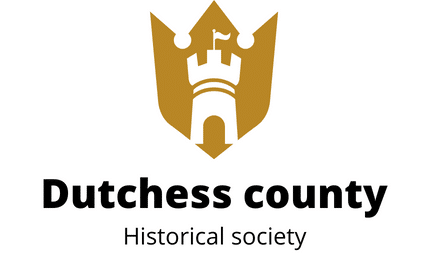12 vidéos inspirantes sur la marque employeur que vous devez voir

Employer branding goes beyond mere recruitment—it's about creating a workplace culture that attracts and retains top talent. These 12 inspiring videos showcase innovative strategies and best practices that organizations employ to build a strong employer brand. Discover how leading companies effectively communicate their values and engage employees, transforming their workplace into an employer of choice. Elevate your understanding and ignite your creativity in shaping your own employer branding journey.
Understanding Employer Branding
Employer branding is a strategic approach aimed at positioning an organization as the employer of choice for both current and prospective employees. This concept revolves around the articulation of a company's values, culture, and mission in a way that resonates with potential hires and existing staff. A strong employer brand significantly enhances a firm's ability to attract and retain top-tier talent, providing a pivotal competitive advantage in the modern job market. It extends beyond advertising, incorporating authentic storytelling aligned with employee experiences and corporate messages.
Also to discover : What Breakthroughs in Speech-to-Text Technology Are Benefiting the Hard of Hearing?
To develop an effective employer branding strategy, it's crucial to follow a structured process. Start by defining your Employer Value Proposition (EVP), which should clearly reflect what makes your organization unique to employees. Next, create a robust communication plan to consistently convey your brand through various channels such as social media and career events. Implementing a content strategy that highlights employee stories can further engage potential candidates. The strategy also involves the recruitment and retention of top talent, ensuring that your brand promise aligns with actual employee experiences, thus fostering loyalty and reducing turnover.
Best Practices for Employer Branding
Defining the Employer Value Proposition (EVP)
Creating a powerful Employer Value Proposition (EVP) is pivotal for effective employer branding strategies. An EVP should clearly articulate the core values and culture of the organization, offering compelling reasons for both prospects and current employees to engage with your company. When strategizing the EVP, it is essential to understand the expectations and values of your target audience to resonate authentically. The EVP acts as a persuasive tool, reducing recruitment costs and boosting employee retention by aligning job seekers with your organizational ethos.
Also to see : Explore the thrilling secrets of the enigmatic black box
Using Employee Ambassadors Effectively
Leveraging employee ambassadors is an innovative approach in employer branding campaigns that can significantly amplify brand perception. Employee ambassadors inherently possess a deep understanding of the company's culture and values. By sharing their genuine experiences, they add credibility and humanize the brand. Initiatives like employee referral programs and storytelling on social media platforms can enhance this strategy. Engaged employees naturally become brand champions, assisting in talent attraction strategies while fostering a more inclusive company atmosphere.
Enhancing Communication Through Various Channels
An important aspect of employer branding best practices is using varied communication channels to promote the company image. Social media, career websites, and professional networks like LinkedIn serve as vital touchpoints in employer branding initiatives. Personalizing content on these platforms ensures stronger engagement, while video content can vividly showcase your workplace environment and culture. Consistent messaging through these channels helps in building a coherent employer brand perception across all audiences.
Implementing Effective Employer Branding Strategies
Strategies for Talent Attraction and Retention
Employer branding strategy serves as a blueprint for enhancing company reputation and attracting top talent. Strategic employer branding initiatives, such as crafting a compelling Employee Value Proposition (EVP), help communicate the company's mission and values authentically. This not only appeals to potential candidates but also reinforces employee loyalty, reflecting positively on retention rates.
Digital and Social Media Employer Branding Techniques
Harnessing the power of digital employer branding, organizations can reach wider audiences through online platforms. Utilizing employer branding on social media effectively showcases company culture and values. Engaging content, employee stories, and interactive posts boost visibility and promote credible employer branding campaigns, fostering a vibrant pool of prospective employees.
Measuring and Analyzing Employer Brand Effectiveness
To assess the impact of an employer branding strategy, various employer branding metrics help in measuring its success. Tracking metrics like application rates, time-to-fill positions, and employee retention gives insight into the effectiveness of branding efforts. Integrating feedback loops further refines the approach, ensuring continuous improvement in employer branding for diversity and inclusion.
Real-World Examples and Case Studies
Notable Employer Branding Campaigns
Employer branding campaigns are essential in positioning an organization as an attractive place to work. For example, Google's employer branding highlights its culture of innovation and flexibility, drawing on its extensive perks and a collaborative work environment. Meanwhile, Starbucks focuses on diversity and inclusion through its "To Be Welcoming" initiative, reflecting its commitment to social responsibility.
Lessons Learned from Employer Branding Initiatives
Insights into successful employer branding reveal that authentic storytelling is a powerful tool. Companies like Adobe and HubSpot effectively use employee testimonials to showcase their internal culture. These initiatives enhance company reputation, making it relatable and drawing in talent aligned with the company's values. Moreover, employer brand storytelling can bridge the gap between corporate goals and employee aspirations, fostering trust.
Future Trends in Employer Branding Design and Strategy
Future employer branding trends indicate increased emphasis on remote work environments and digital strategies. Digital employer branding, with a focus on engaging online content and robust social media presence, becomes crucial. Moreover, employer branding tools and metrics will evolve to accommodate changing work dynamics, emphasizing strategic alignment with corporate branding and employee value propositions. This evolution will ensure companies remain competitive in attracting talent.
